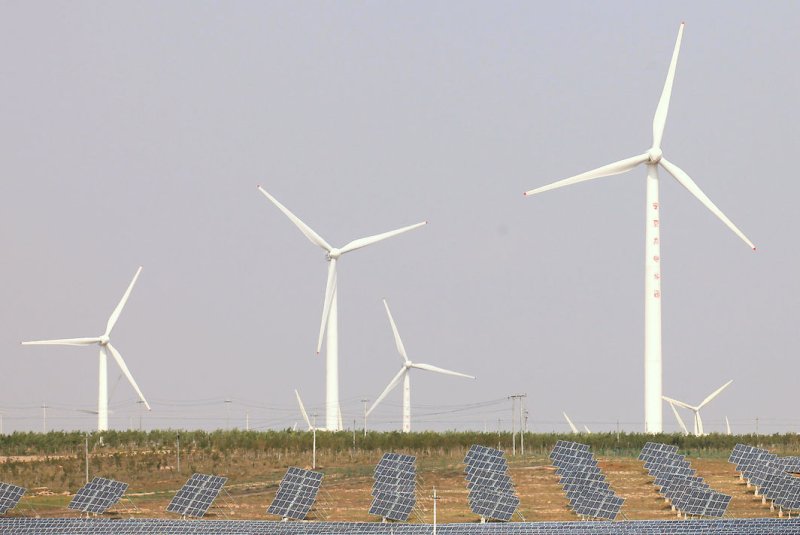Fewer than half of the EU members have met targets set for 2020 on renewable energy, the latest data show. File photo by Stephen Shaver/UPI |
License Photo
Jan. 25 (UPI) -- Of all EU members, more than half have work to do to meet renewable energy goals and France, despite its ambition, is one of the furthest away, European data show.
Members of the European Union are aiming to have renewable energy make up 20 percent of total energy by 2020, and at least 27 percent by 2030. Each EU member state has particular pathways toward the collective 2020 target.
Of the 28 members of the EU, 11 have already met their targets, according to the latest European data. Of those, Sweden is the clear leader with 53.8 percent of its energy coming from renewable resources, followed by Finland with 38.7 percent.
On the other end of the spectrum, the Netherlands and France are the furthest away, with 8 percent and 7 percent to go in the next two years, respectively.
Nicolas Hulot, the French state minister for the environment, introduced a measure in September that would end exploration and conventional and non-conventional resources like shale oil and natural gas. The measure would phase out oil and gas operations by 2040.
The ban on exploration and production would be largely symbolic. France relies heavily on imports to satisfy its energy demands as it has very few domestic oil and natural gas production options of its own.
The British and French governments also said last year they'd work toward a benchmark of banning the sales of new gasoline- and diesel-powered vehicles from their roads beginning in 2040. Of those still working toward their 2020 targets, the United Kingdom was 5.7 percent away from its benchmark.
Nevertheless, Eurostat, the record-keeping arm of the European Commission, said all member states had made strides to green up their economy over the last 14 years.
"Since 2004, the share of renewable sources in gross final consumption of energy grew significantly in all member States," its report read. "Compared with 2015, it has increased in 15 of the 28 member states."















